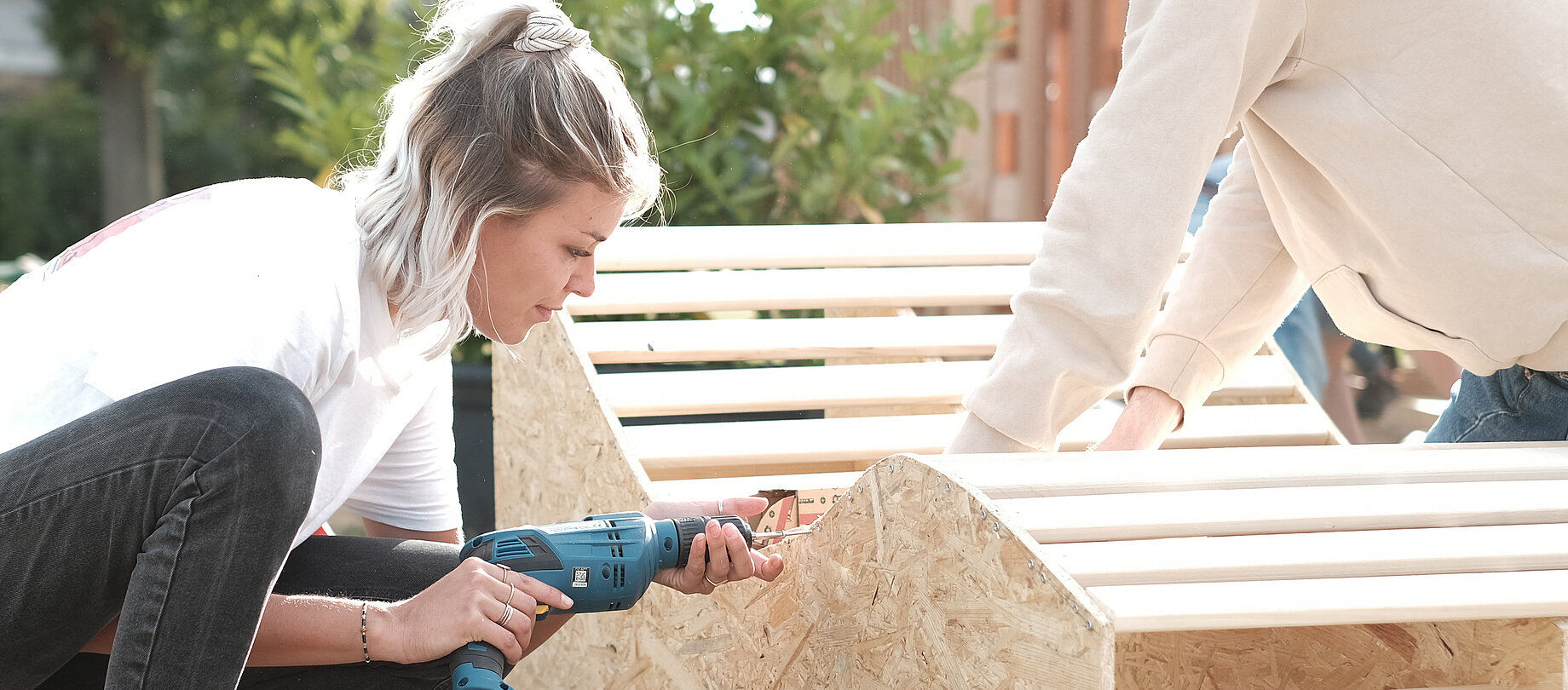
People, Digital Intelligence and Recycling – Shaping Urban Life Together
The project “People, Digital Intelligence and Recycling – Shaping Urban Life Together” unites an interdisciplinary team at the TU Braunschweig, featuring the disciplines of architectural arts, computer science and business information systems. The objective of the project is the support of citizen-centric participation in the urban environment. A bottom-up approach is utilized to enable the citizens to implement their own idea in the city. In this regard the “Sandkasten” of the TU Braunschweig should grow and cross the university borders. Projects like a sustainable music festivals and campus furniture assembled from pallets are only a few examples which have been created during the four years of “Sandkasten” – which projects might be created in the city?
This question should not only be answered in theory. The team around Susanne Robra-Bissantz, Folke Köbberling and Wolf-Tilo Balke is convinced to shape the project not only for the citizens but also with their participation. Three areas of research are covered in their respective sub-projects:
Narratives in the public discourse have become prevalent and pervasive due to social media and the digitization. A strong narrative increases the identification of the citizens with a specific objective or project. The MatchIT project uses and develops new methods from the area of computer science to find strong narratives in the public discourse and discover opportunities to generate new narratives to moderate the discourse. The latter should be done in conjunction with the other two projects.
Research regarding the reuse of materials in the urban areas is the driver of the R4 project. Possible applications for disposed resources in the cities are researched and demonstrated as prototypes to counter the ongoing climate change. Additionally, raising awareness and the inclusion of the citizenship are part of this process.
Collaborative processes for participation in the city life can be moderated and pushed by participation platforms like “Sandkasten”. The third project is settled in the area of business information systems and focusses on the usage and nature of such platforms. In this regards, applications and success factors of participation platforms are the center of attention in this project.
The project “People, Digital Intelligence and Recycling – Shaping Urban Life Together” unites an interdisciplinary team at the TU Braunschweig, featuring the disciplines of architectural arts, computer science and business information systems. The objective of the project is the support of citizen-centric participation in the urban environment. A bottom-up approach is utilized to enable the citizens to implement their own idea in the city. In this regard the “Sandkasten” of the TU Braunschweig should grow and cross the university borders. Projects like a sustainable music festivals and campus furniture assembled from pallets are only a few examples which have been created during the four years of “Sandkasten” – which projects might be created in the city?
This question should not only be answered in theory. The team around Susanne Robra-Bissantz, Folke Köbberling and Wolf-Tilo Balke is convinced to shape the project not only for the citizens but also with their participation. Three areas of research are covered in their respective sub-projects:
Narratives in the public discourse have become prevalent and pervasive due to social media and the digitization. A strong narrative increases the identification of the citizens with a specific objective or project. The MatchIT project uses and develops new methods from the area of computer science to find strong narratives in the public discourse and discover opportunities to generate new narratives to moderate the discourse. The latter should be done in conjunction with the other two projects.
Research regarding the reuse of materials in the urban areas is the driver of the R4 project. Possible applications for disposed resources in the cities are researched and demonstrated as prototypes to counter the ongoing climate change. Additionally, raising awareness and the inclusion of the citizenship are part of this process.
Collaborative processes for participation in the city life can be moderated and pushed by participation platforms like “Sandkasten”. The third project is settled in the area of business information systems and focusses on the usage and nature of such platforms. In this regards, applications and success factors of participation platforms are the center of attention in this project.
Duration
2019-2024 (1st funding phase)








